UNWomen
The Gender Equality in Political Governance Programme (GEPG) is UN WOMEN Pacific’s major regional project in the key focus area of “Leadership and Participation”. GEPG is a flagship programme for UN WOMEN Pacific and the AusAID Pacific Leadership Programme. It provides the community of practitioners working in governance in the Pacific with high-level gender expertise and experience and new strategic approaches to incorporate gender equality in governance in the region. The programme also provides the capacity to conduct quality research and develop and disseminate new knowledge to inform and strengthen work on gender equality in the context of governance across the Pacific Island countries.
GEPG is funded by AusAID with a contribution of AUS$6.2 million over a period of five years and also part-funded with UN WOMEN core funds. GEPG is supported to work regionally, sub-regionally, nationally and sub-nationally, and locally, serving 15 Pacific Island countries (Cook Islands, Federated States of Micronesia, Fiji, Kiribati, Marshall Islands, Nauru, Niue, Palau, PNG, Samoa, Solomon Islands, Tokelau, Tonga, Tuvalu and Vanuatu). Additional presence and intensive outreach is provided to sub-national level in three Melanesian countries – PNG, Solomon Islands and Vanuatu – where the status of women is low, the gender gap in all aspects of politics is high and the challenge to incorporate gender equality in governance is greatest.
GEPG provides technical assistance and training at all levels of society, and across key stakeholder groups and partner agencies, that share and contribute to building broad-based understanding of the democratic system of government; the role of elections, political parties, parliaments, local governments; the importance of constitutional provisions, laws, policies; and budgets related to governance institutions, mechanisms and processes. UNIFEM brings a gender perspective to this community of practitioners’ specialization, emphasizing, for example, the need to understand and focus on how different electoral systems limit or facilitate the inclusion and participation of women as both citizens and as leaders. For more information, click here.

